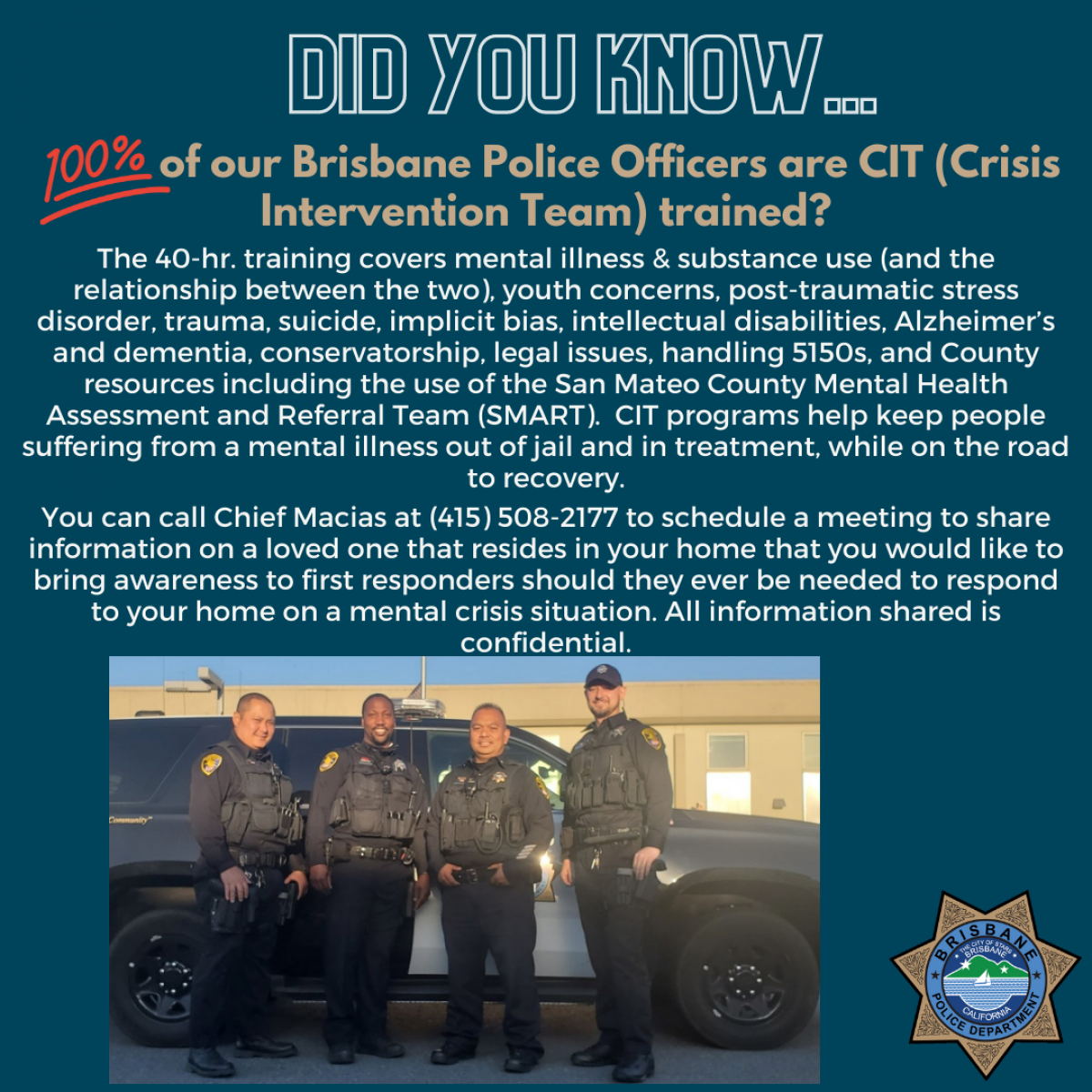Training Topics

In every interaction we have, and during every call for service, the safety of all involved parties is our top priority. That is why we're constantly training.
We have completed training on the upcoming California legislative mandate related to the use of deadly force only needed to defend against an imminent threat of death or serious bodily injury to officers or bystanders. This legislation, called the California Act to Save Lives, has already made its way towards setting the standard for law enforcement across the nation.
The safest outcome in a behavioral health crisis can be achieved when law enforcement has the appropriate skills and the community clearly communicates its needs. To that end, 100% of our officers are CIT (Crisis Intervention Team) trained. The 40-hour training is comprised of classroom lectures on topics such as mental illness and substance use (and the relationship between the two), youth concerns/interventions, post-traumatic stress disorder, veteran’s issues, trauma, suicide, implicit bias, intellectual disabilities, Alzheimer’s and dementia, conservatorship, legal issues, handling 5150s, and County resources including the use of the San Mateo County Mental Health Assessment and Referral Team (SMART). Also covered in the training is how family and supportive friends can share information with police to help an individual get the appropriate care. You can call Chief Macias at (415) 508-2177 to schedule a meeting to share information on a loved one that resides in your home that you would like to bring awareness to first responders should they ever be needed to respond to your home on a mental crisis situation. All information shared is confidential. It takes a village to ensure safety in the community, and crisis intervention training is one of our crisis services helping to do just that.
Our legal team from Lexipol, continuously evaluates our Department policies, tools, tactics, and training to ensure that they remain in line with national best practices. See BPD's Policy Manual here.
Our officers train bi-monthly on topics such as the appropriate use of tools and tactics, legal updates, and a variety of other skills, including anti-bias training, de-escalation efforts, and more. Our officers are all equipped with body worn cameras as well as cameras installed in all patrol vehicles. We conduct quarterly audits to make sure officers are adhering to Department policies.
